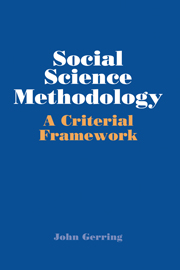Book contents
9 - Methods
Published online by Cambridge University Press: 05 June 2012
Summary
The scene is an inn. Pickwick and some young friends are dining when Editor Pott comes upon them. Some preliminary chatter of a delightful sort and Pott is convinced that Pickwick's young friends are waverers – they do not follow the blue. To set their opinion on solid foundations, he urges them to read a series of articles that appeared in his paper in the form of a review of Chinese metaphysics. “An abstruse subject,” says Pickwick. “Very,” says Pott, but my writer “crammed for it … he read up for the subject, at my desire, in the Encyclopaedia Britannica.” “I was not aware that this valuable work carried anything on Chinese metaphysics,” responds Pickwick. “He read, Sir,” rejoins Pott, looking round with a smile of intellectual superiority, “He read for metaphysics under the letter M and for China under the letter C, and combined his information, Sir.”
–Martin Landau/Charles DickensA good research design, I have argued, is characterized by plenitude, boundedness, comparability, independence, representativeness, variation, analytic utility, replicability, mechanism, and causal comparison. To the extent that we can draw accurate conclusions about causal relationships in the sphere of human actions we do so with studies that embody these ten features. This is the simplest and most parsimonious way of summarizing the complex task of research design in causal analysis.
As we have already noted, these criteria are often in conflict with one another, such that we cannot fulfill all ten (at least not to an equal degree).
Information
- Type
- Chapter
- Information
- Social Science MethodologyA Criterial Framework, pp. 200 - 229Publisher: Cambridge University PressPrint publication year: 2001
